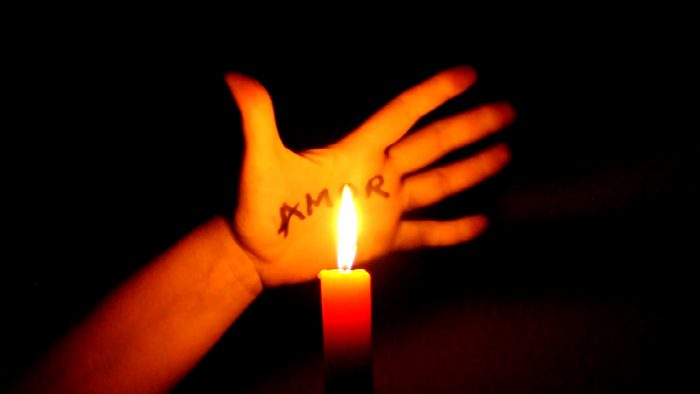Tiempo de lectura: 4 minutos

28.07.2020
Río de Janeiro, Brasil
20 de julio de 2020 – 22 de agosto de 2020



Act 1 – It’s all codified fog
[…] there are three presents, the present of the past which is memory, the present of the future which is expectation, and the present of the present which is intuition (or attention). This threefold present is the organizing principle of temporality […]
—Ricoeur, 2000, p. 360
This is an exhibition divided into two acts, which takes place in a pandemic world where the notions of time, past, present and future seem to be dilated. On that note, I invite you to think about a distension of time, where we inhabit three presents: present of the past (memory), present of the present (attention) and present of the future (expectation).
In this time gap, we are far from finding answers. All we can do is stir up some discussion on how to cope in this in-between place. Thus, we make our way into the first act, with our bodies suspended in this fragmented present, fighting for the existence of mankind as if the body were displaced from matter and floated on flowing rivers. To quote Mia Couto, “the river is like time!” It’s as if a fog hanged over this place of suspension, where the obscurity of this heavy mist on our retina prevents us from seeing until we are transported to a city bereft of lives.
We face a hyperconnected and dystopian time, which lurches on and has accidents, and is at risk of falling apart. In this aporia of being-in-time, that seems to blur our vision of a possible present, it’s as if we entered another stage of life, another world, where we are active spectators in an “out-of-control” time, on a planet that warns us of the impacts of an exploited land, on the brink of collapse, while we are wallowing in anxiety, loneliness, death, uncertainties, denialism, video calls, zoom, emojis, social networks, memes, algorithms, fake news and endless live streams…
You stand before an exhibition-project in the sense of looking forward to new possible worlds, at a time when the SARS Covid-19 virus keeps us apart from each other and sets limits and barriers in our daily lives, putting us in a state of anguish and impotence. It spotlights big social gaps that already existed, the precariousness of life, because the conditions inflicted by the virus are not the same for everyone who lives in this place called Brazil.
While we try to deal with the impacts of the virus, we are transported to a temporal slowdown. In a nearly fictional way, we fall into a place out of sync with the speed of information we receive daily via social networks, websites and whatsapp. With the impossibility of bodily experience, we adapt to the ways of being in the world, in a digital territory, where we are always online, through cell phone screens. As a counterexample of the speed and availability of the image culture, we are affected by other conditions of interactions and plunge into an attempt to reconnect with the world.
In this moment of uncertainty, where we wait for scientific and even spiritual cures, we activate imaginary devices, such as experiencing dreams and ruptures, to share the present and imagine the future. Would it be possible to process memory and generate dreams? A wake up call for us to “(…) acknowledge the institution of the dream not as a daily experience of sleeping and dreaming, but as a disciplined exercise of seeking in the dream the guidelines for our daily choices” (Krenak, 2019).
It is necessary to find a new rhythm for the time we used to live in, to weave new possible worlds for a fairer society, and to trust in the power of love in order to create ways to reexist, to search for strategies, strangeness, horizons and fillings in order to inhabit the present. A reconciliation with time. Sharing and expanding this eternal threefold present and creating a possible present-future, out of this one in transition, on the threshold, at the center of our existence.
—Text and curatorship by Érika Nascimento
—
Artists
Anna Bella Geiger, Aslan Cabral, Fernando Velázquez, Gabriela Noujaim, Jeane Terra, Kammal João, Luzia Ribeiro, Manata Laudares, Moisés Patrício, Nadam Guerra, PV Dias, Roberta Carvalho, Regina Pessoa and Vinícius Monte.
—
https://www.simonecadinelli.com
Comentarios
No hay comentarios disponibles.